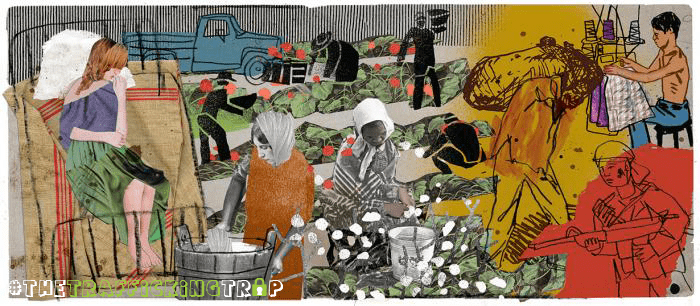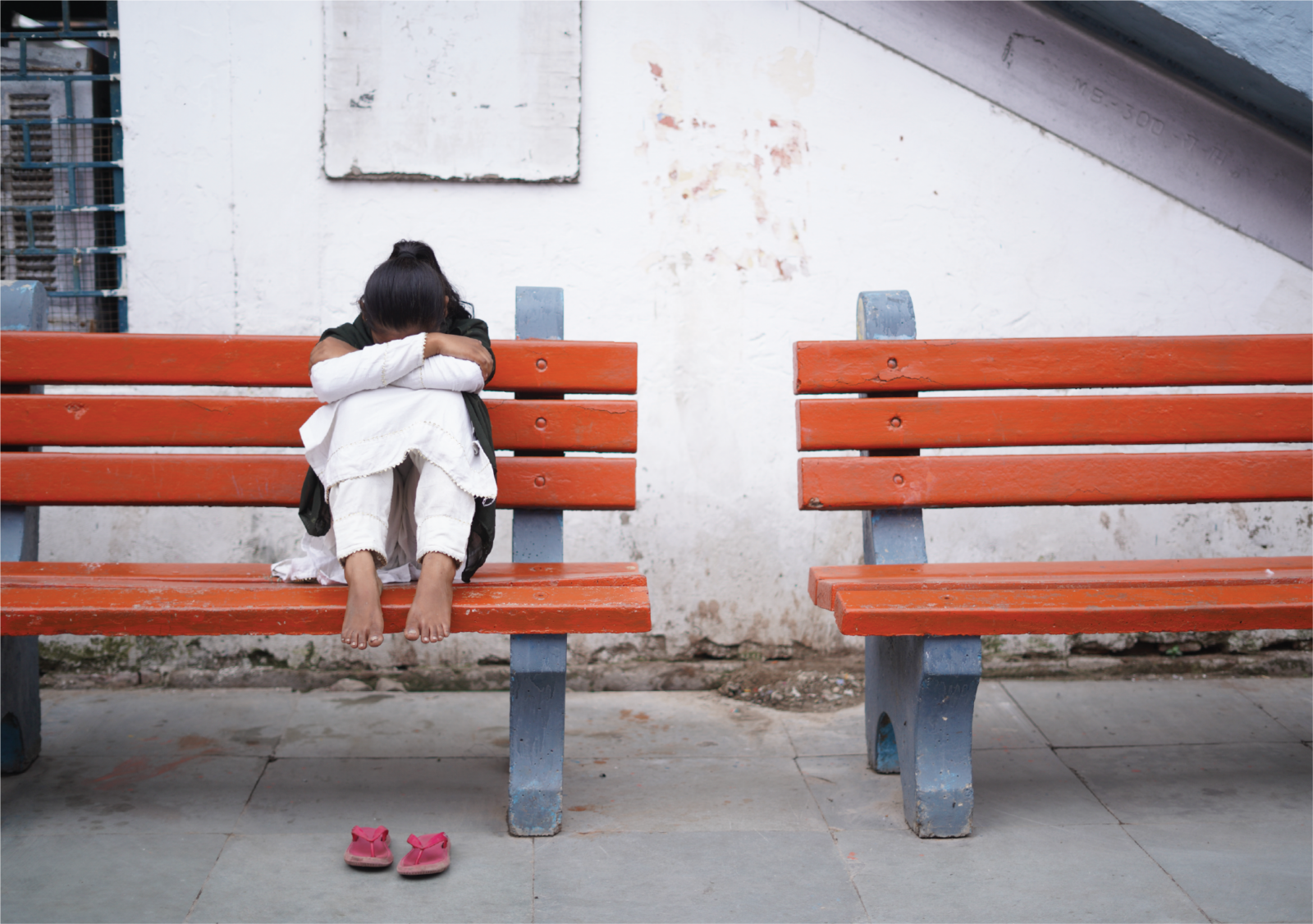Child trafficking for sexual exploitation and forced labour represents the tragic end of childhood, and a crime against children. ILO data estimates 1.2 million children are trafficked every year, almost instantly stripping children of their right to education, protection, safety amongst others.
Here are some frontline warriors, fighting the good fight to help children out of the cycle of child trafficking.
1.PRERANA
Prerana is an NGO that works in the red-light districts of Mumbai, India. It was established in 1986 to protect children vulnerable to commercial sexual exploitation and trafficking. The organization runs t3 night care centers for children at risk, as well as shelter homes and a residential training center for girls rescued from the trafficking trade. The work of Prerana has been recognized nationally and internationally as being at the forefront of leading the global fight against trafficking and sexual exploitation.
“There were a lot of myths like flesh trade runs in the blood of these children, and no matter what you do, they will eventually end up doing the same work. Several people ask us whether these kids even go to schools. If you give them opportunity, they will definitely flourish. Several children have even finished an MBA from a good university, got a good job, and rescued their mothers.” Said Priti Patkar, founder of Prerana, in an article for The Guardian.
Prajwala India is an anti-trafficking organization working on the issue of sex crime. The organization was established in year 1996 in South India and has become one of the most powerful voices nationally and globally for ensuring holistic victim services. It works on the five pillars of Prevention, Protection, Rescue, Rehabilitation and Reintegration.
Is this going to be only our battle? How do we take this further? We’ve rescued 15,600 girls; that’s hardly a speck when we think of over three million women and children victims. The age of victims is getting lower and their economic profile is changing. Even middle class and upper middle class girls are victims, with the growth of social medium platforms. Our perceptions of trafficking and the methods to combat it need to be re-examined,”says Sunitha Krishnan, founder of Prajwala India, to The Hindu.
Impulse NGO Network (INGON) is a non-profit organisation founded in 1993 to address the issue of unsafe migration, exploitation, and human trafficking. With a focus on the the eight states of North-East India, and to countries that India shares borders with, such as Nepal, Myanmar, and Bangladesh, they work on collaborations between the public and private sectors, to effectively tackle human trafficking at various stages. The network works to effectively raise awareness, develop sustainable livelihood opportunities, provide victim assistance, build the capacity of stakeholders, and create and disseminate knowledge and technology tools, to adequately tackle human trafficking, exploitation and unsafe migration.
“In the last three decades of dealing with human trafficking, I have realized that the problem of scores of youths and children getting trafficked across the border is society’s negligence to acknowledge it. Once we accept that there is rampant human trafficking from and to the Northeast, we’ll be able to decipher the cause that leads to it.” says Hasina Kharbhih, founder of Impulse NGO.
4.MISSING
Missing Link Trust is a Kolkata based NGO launched in January 2014. It is working globally in transforming people’s perception, educating individuals and inspiring communities to put an end to modern day slavery. The organization uses art and technology to create awareness about sex trafficking amongst young girls. Using innovative public art installations and interactive murals reaching both rural and urban parts of India, Missing has managed to create mass awareness on the subject at a global level.
“During my career as a photographer, I was hit by a very important issue – sex trafficking. Today, there are 3 million prostituted women in India, out of which 1.2 million are young girls. The average age of recruitment of girls into prostitution is between 9 and 12 years of age. These are disturbing statistics. When I first started working with NGOs like Hamari Muskan and New Light as an artist, I dealt with the issue by creating complicated installations within gallery spaces that brought up the dark realities of sex trafficking in a very graphic way. But this did not seem right. To create mass awareness, I realised I needed to distill the issue into a simple, engaging piece of art that spoke to everyone and transcended language and space. That is when my public art project MISSING emerged. MISSING was finally launched to great reviews at the India Art Fair in January 2014.” Says founder Leena Kejriwal.
Guria India is an NGO fighting against child prostitution, second generation prostitution, trafficking of women and children for forced labour or sex primarily in Northern India. Advocating for improvements in government policy and law enforcement pertaining to trafficking and prostitution is another major activity of Guria. They not only provide justice to survivors, but also work to support them and rehabilitate them. The organization was founded in 1993 to fighting these causes which became a serious issue due to the spread of HIV/AIDS. The blueprint of the foundation was laid out way back in 1988 when the founder adopted three children of a woman from a red-light area.
“The whole profession and system are so complex that providing mere education to the kids or spreading awareness about health, HIV, etc., cannot solve it. The issue is slavery and the need to abolish the system of sex trafficking. It is only then that girls can be saved to lead better lives.” Says founder Ajeet Singh to Newsgram.
Free a Girl India is dedicated to fight child prostitution and impunity. They focus on prevention, tackling impunity, lobbying and advocacy, and rehabilitating and reintegrating the girls. Free a Girl India works with fourteen partner organizations in Bangladesh, Brazil, India, Iraq, Laos, Nepal, the Netherlands, and Thailand and have rescued more than 4,500 minor girls worldwide.
“The programme is focused on supporting survivors of forced child prostitution from different backgrounds, irrespective of urban or rural. We do have young urban women working on this project with us who are actively working to help these young aspiring lawyers overcome the hurdles that they face,” says Evelien Hölsken, Co-founder, Free a Girl.






